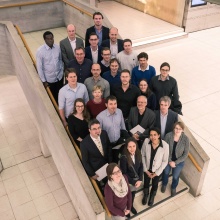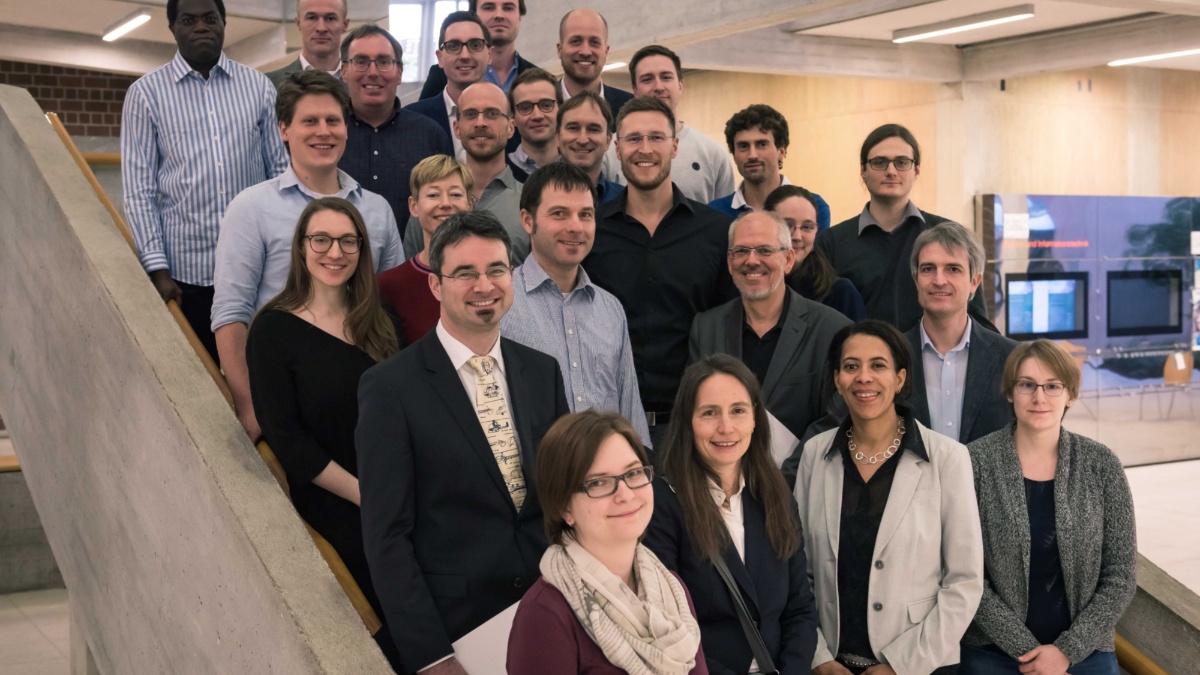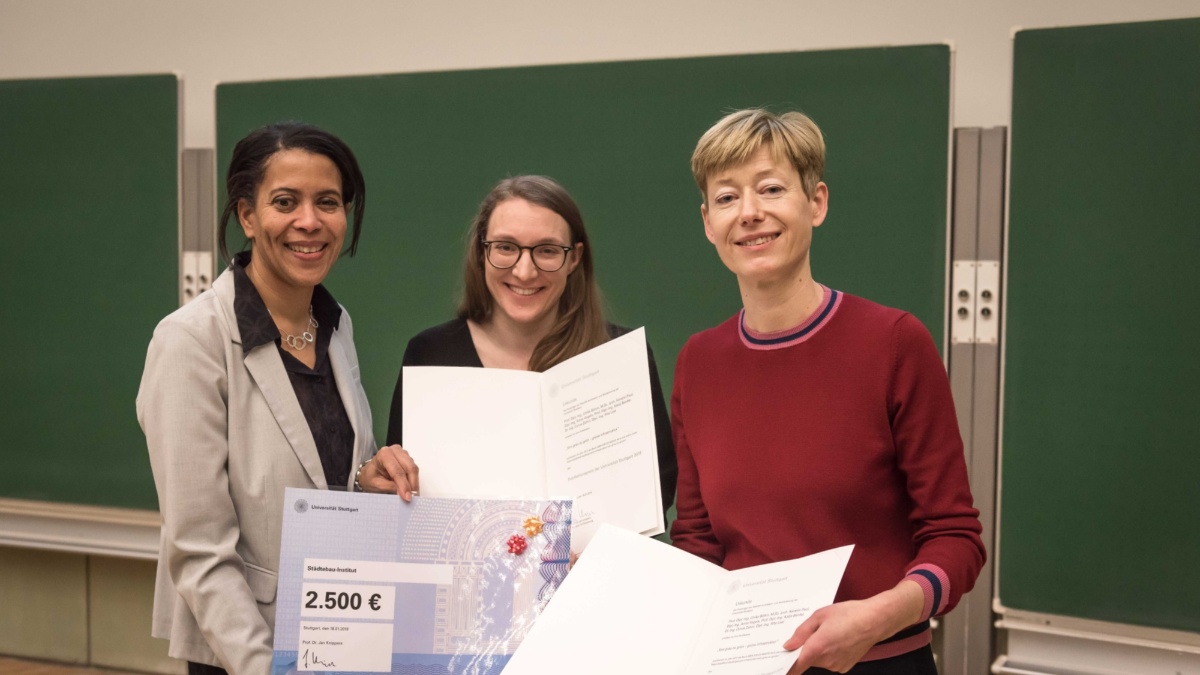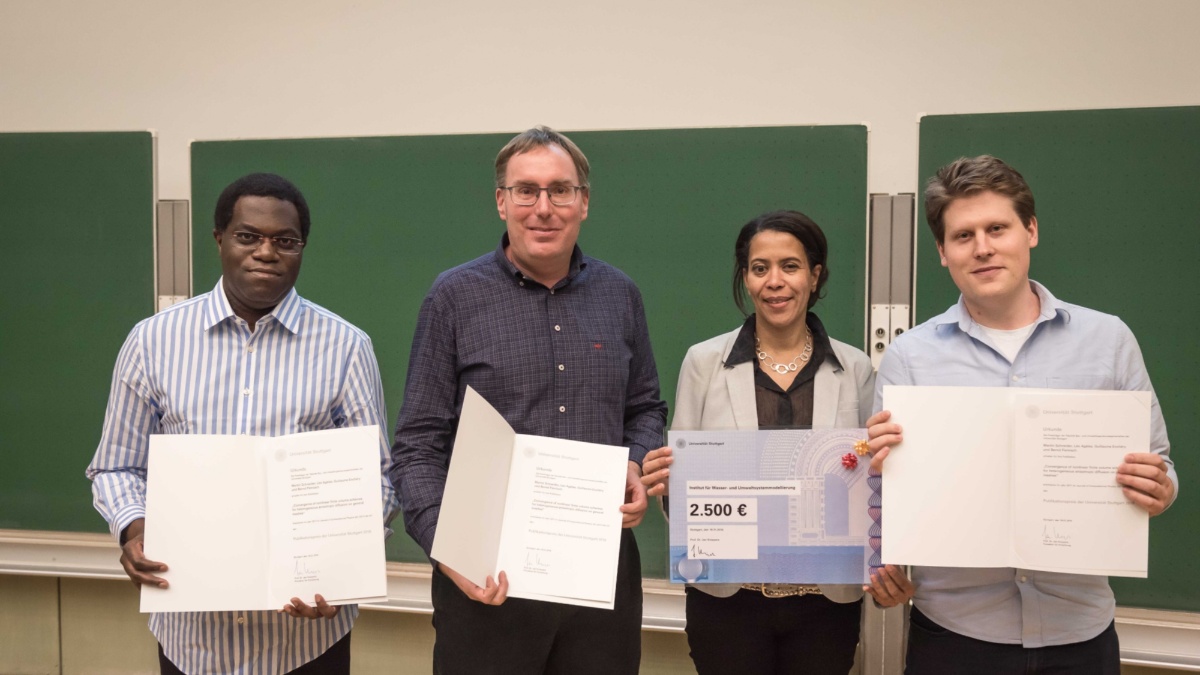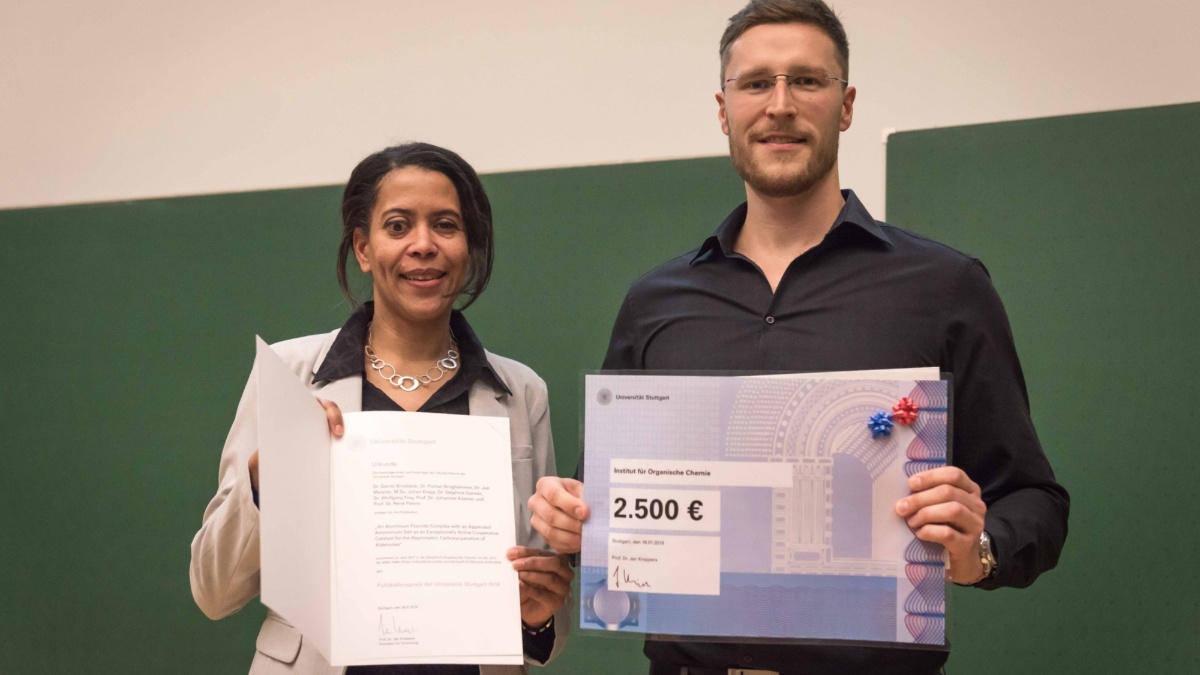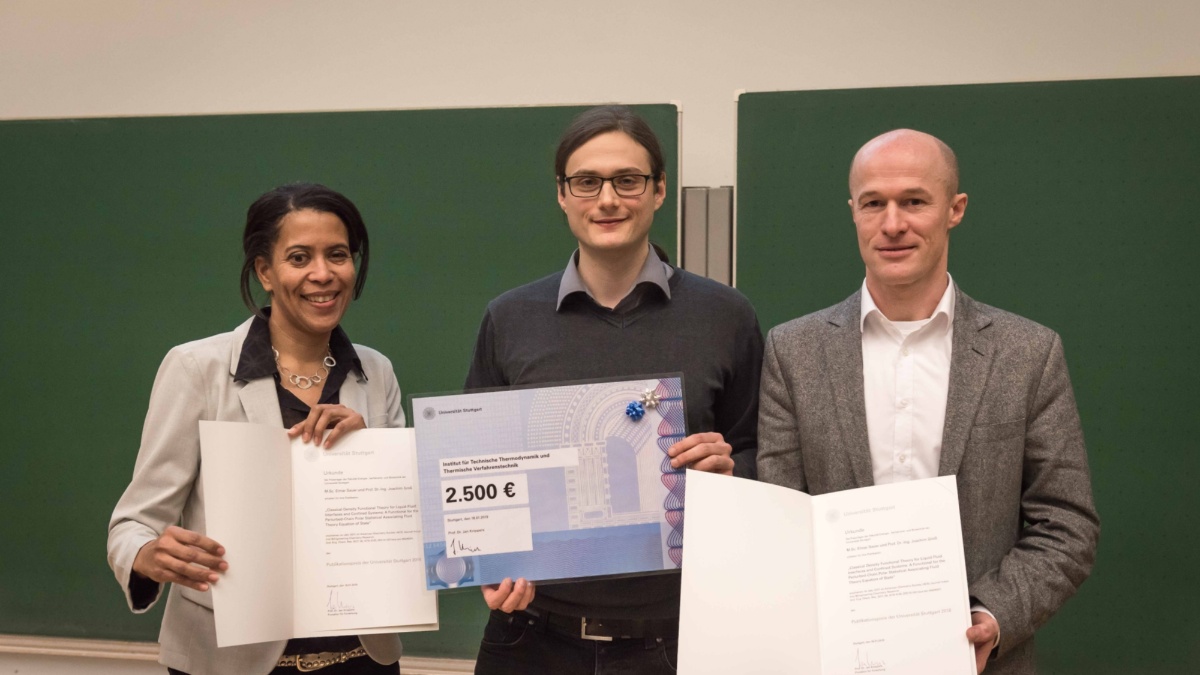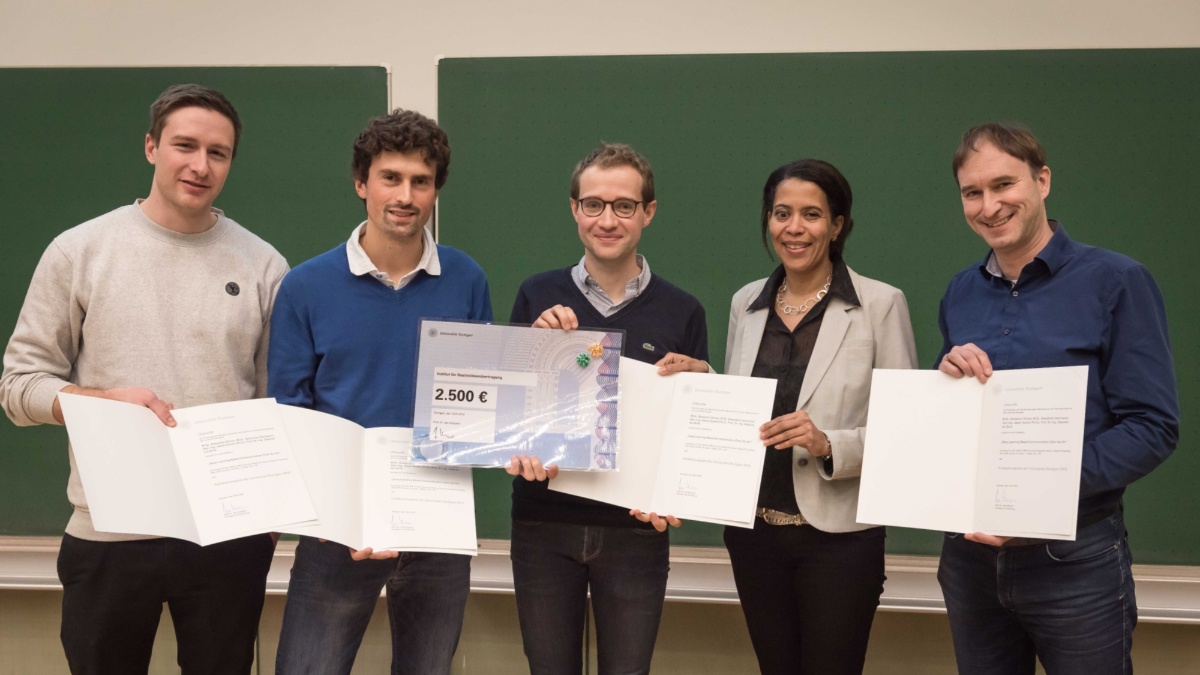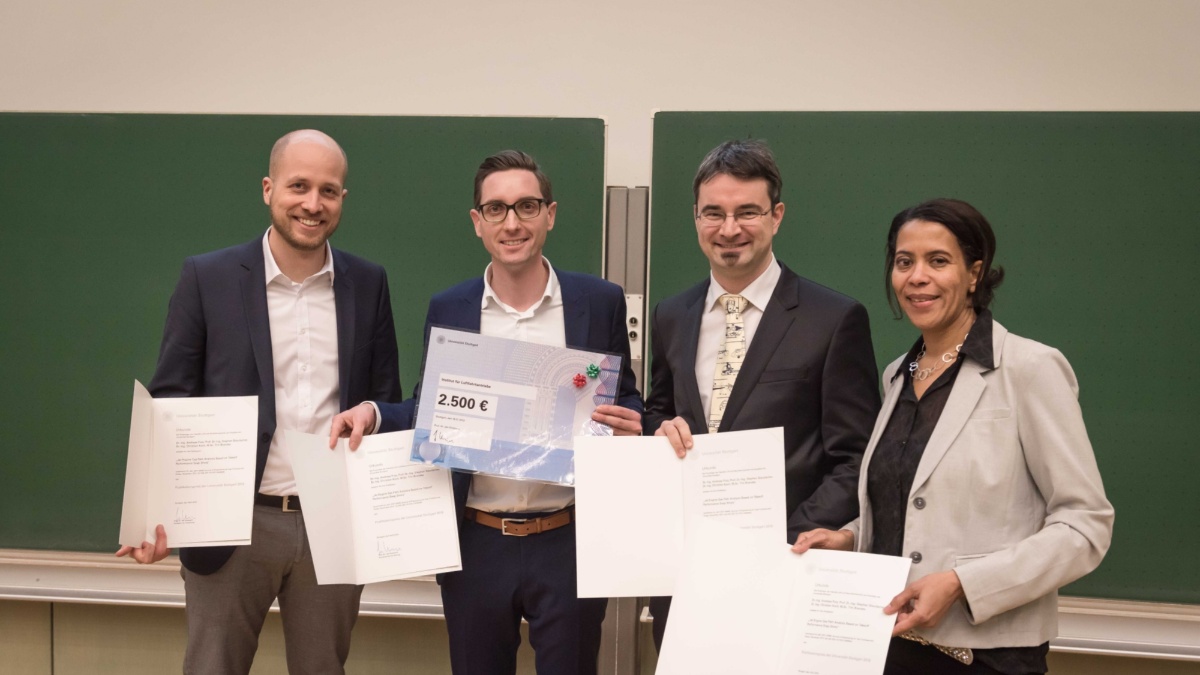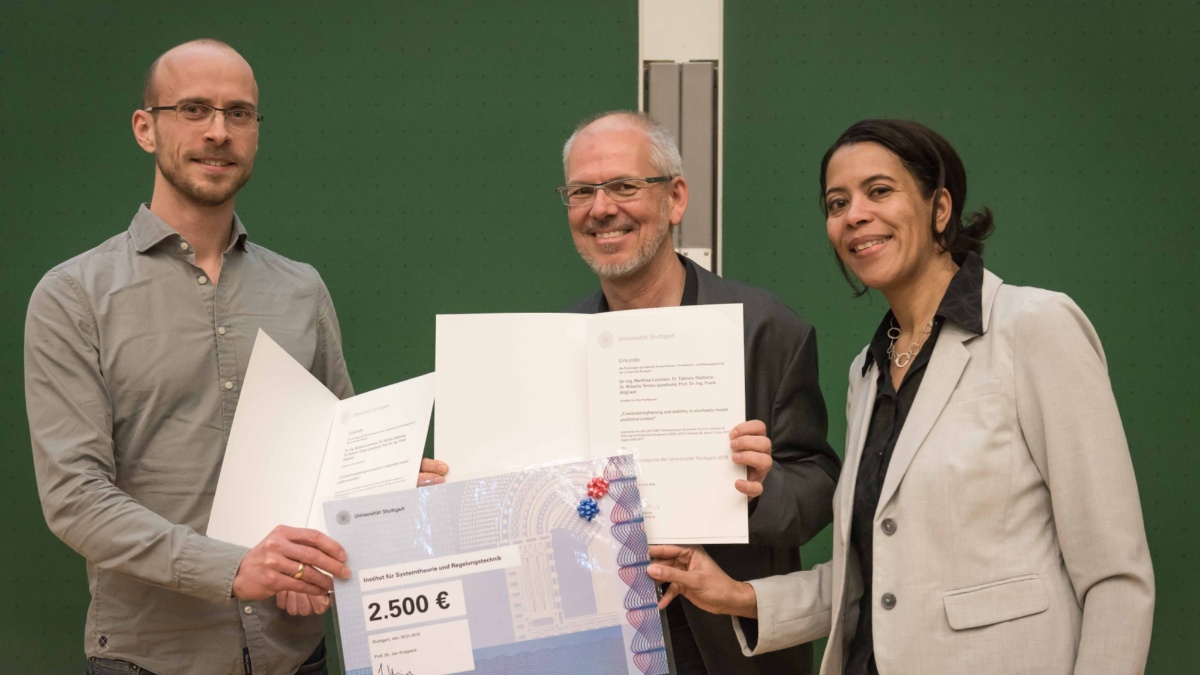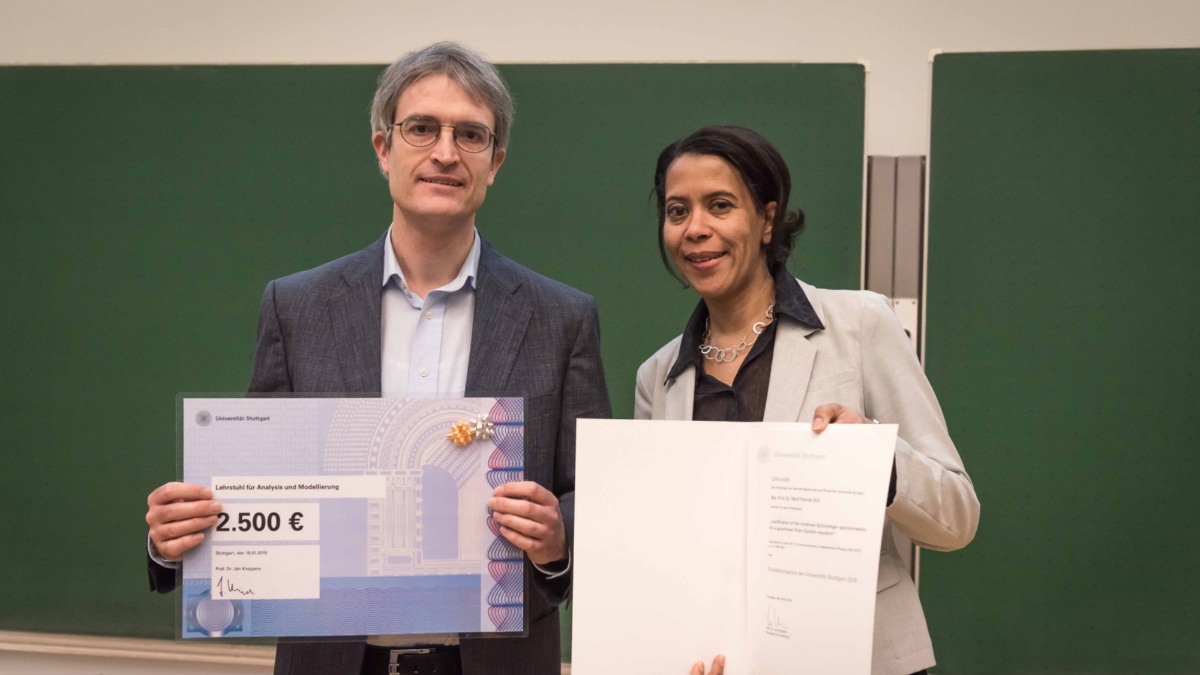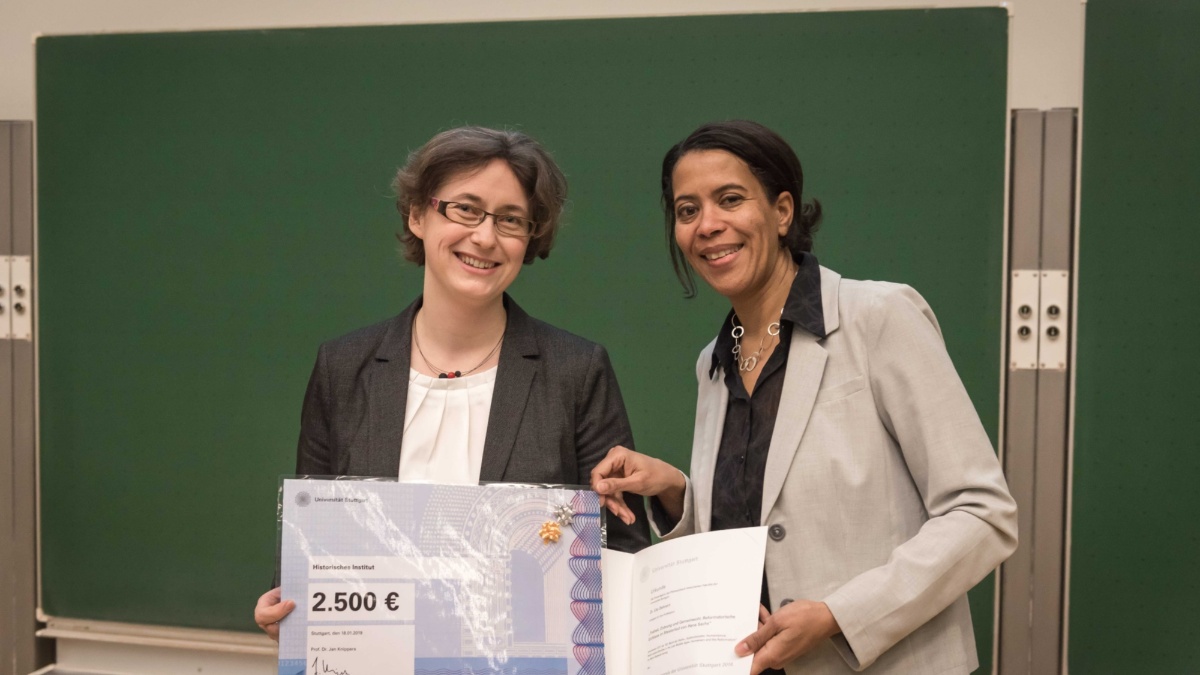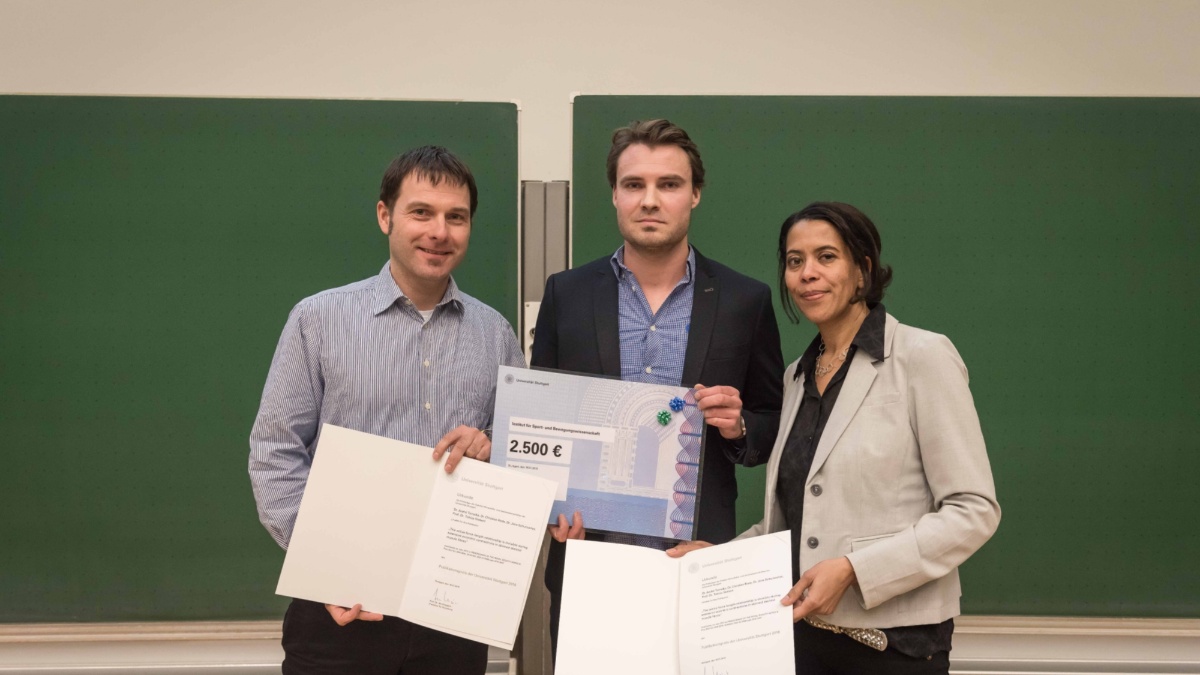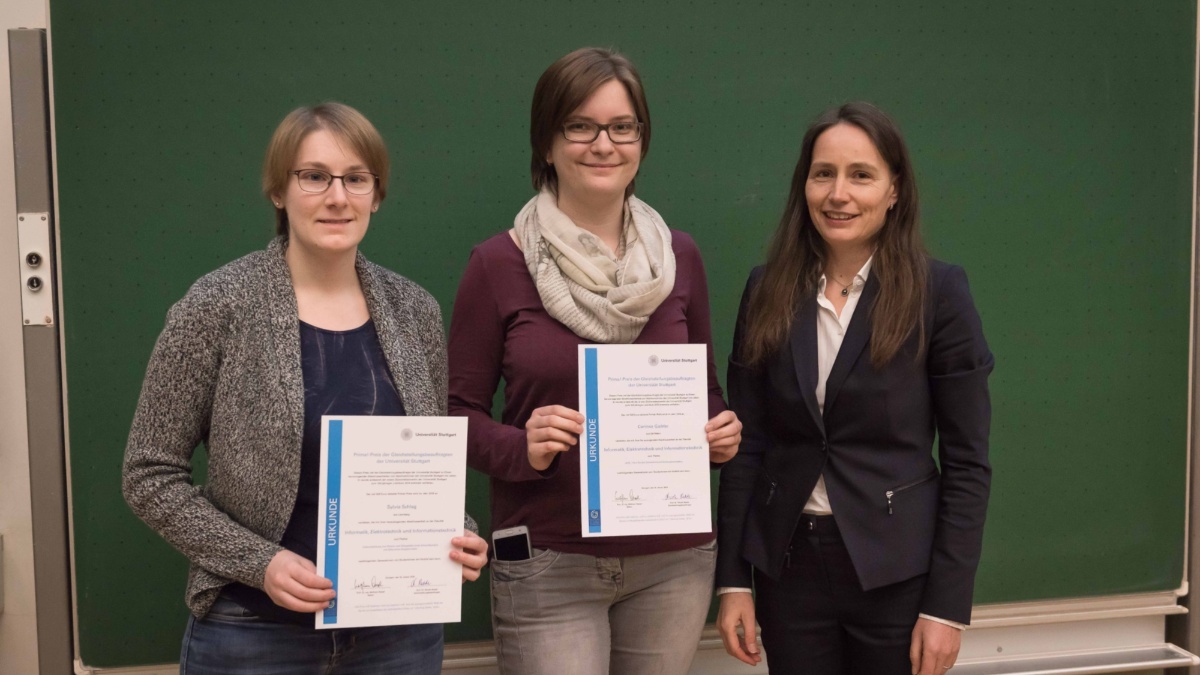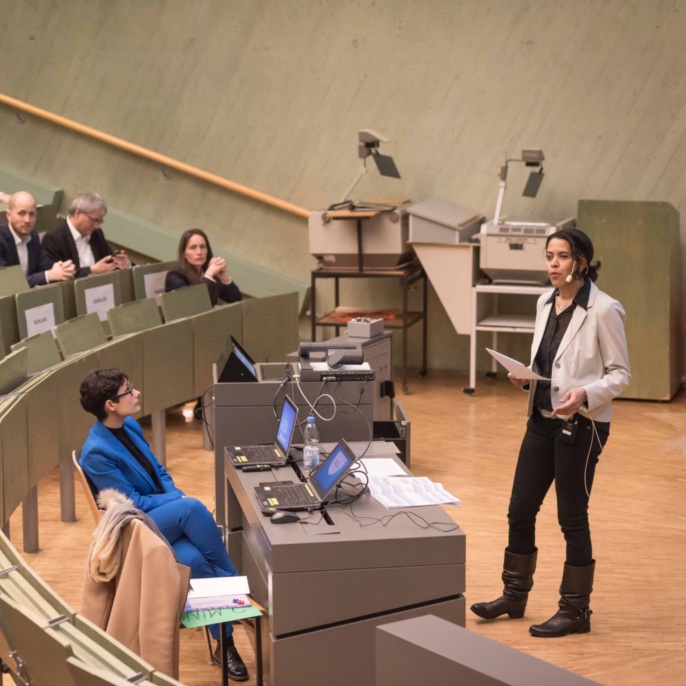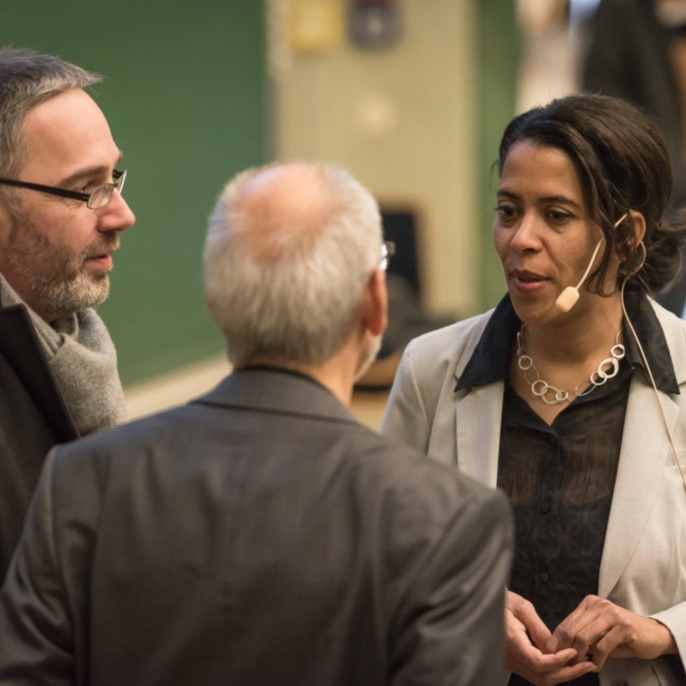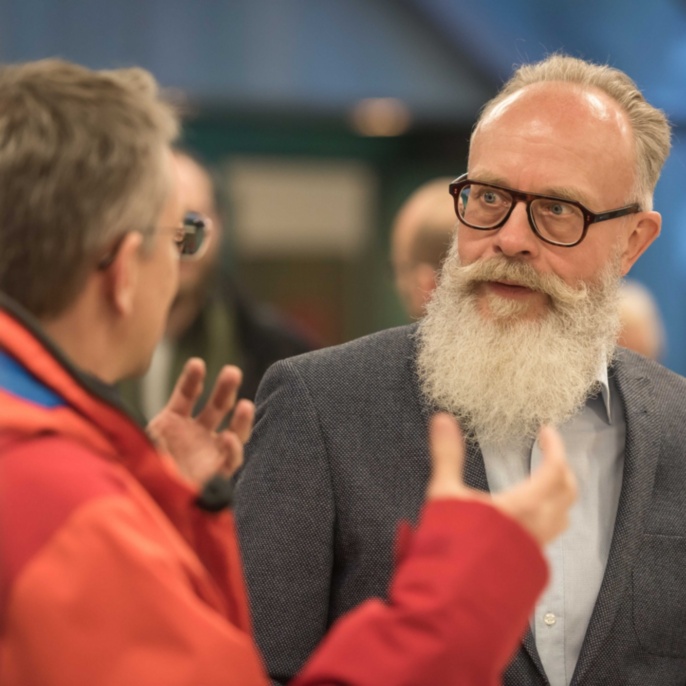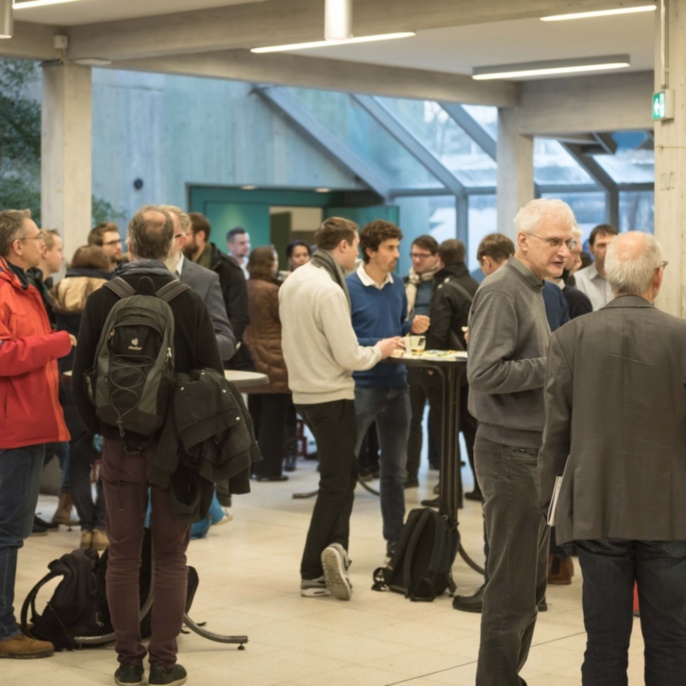‘Research not only has to be performed and applied, but above all must be communicated’, says Professor Monilola Olayioye, Vice Rector for Young Researchers and Diversity. Last Friday, on the second day of the Research Conference of the University of Stuttgart, she awarded the university's publication prize to a total of ten publications from all ten faculties. The award is endowed with 2,500 Euro prize money.
Our University represents a hub of cutting-edge research
Prof. Monilola Olayioye, Vice Rector for Early Career Researchers and Diversity.
The Vice Rector views the Research Conference as a platform for mutual enrichment. ‘Our University represents a hub of cutting-edge research, which is demonstrated by the selection of two clusters of excellence.’ It would be essential to make this research visible.
In a short lecture, all laureates present the topics of their publications. By doing so, even laypersons should be able to gain a rough insight into such complex research topics. This is exactly why laureate Dr. Daniel Brodbeck explains the chirality in chemistry by means of a handshake and Professor Wolf-Patrick Düll elaborates on his complex publication: ‘The movement of a squeaking rubber duck in the bathtub is not included in the nonlinear Schrödinger Equation.’ A glass of water serves to explain the interface properties at the molecular level to the audience. Moreover, the audience learns that ‘a hell of a lot is going on’ in jet engines of airplanes. However, anyone could continue to fly with aircrafts, reassures Dr. Christian Koch. He and his colleagues have developed a significant correction algorithm, which is already being applied in practice.
Being able to explain one's own research topic comprehensively to an audience of laypersons remains challenging, maintains laureate Elmar Sauer. ’The correct choice of terminology is particularly difficult.’ The 32-year-old studied process engineering at the University of Stuttgart, Germany and has since accepted a post-doctorate position at the IFP Énergies nouvelles research institute in Paris, France. He is thoroughly enjoying this Research Conference. ‘I have very little contact with humanists or architects in everyday life. It is tremendous to gain an insight into their areas of expertise.’
"The diversity of research at the University of Stuttgart is extremely impressive"
Laureate Matthias Lorenzen also commends this concept. ‘It matters that we share our outstanding research with others.’ The 31-year-old completed his doctorate at the ‘Institut für Systemtheorie und Regelungstechnik’ (Institute of Systems Theory and Control Engineering) and is pleasantly surprised by the diverse research projects: ‘The diversity of research at the University of Stuttgart is extremely impressive.’
Prof. Nicole Radde awards the PRIMA! Prize
It is for the first time that the Gender Equality Officer Professor Nicole Radde awards the PRIMA! Prize within the scope of the Research Conference. The prize is awarded for outstanding scientific academic theses of young female scientists. This year, Corinna Giebler and Sylvia Schlag from Faculty 5 (Computer Science, Electrical Engineering and Information Technology) received the award for their master's theses.
The concluding buffet provides the opportunity to network and hold discussions across disciplinary boundaries. Olayioye highlights: ‘Successful networking is crucially important and we all benefit from the diversity of our faculties.’


